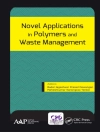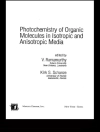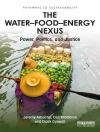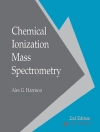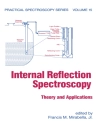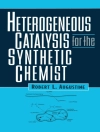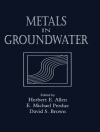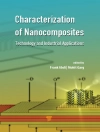The third edition of this popular work is revised to include the latest developments in this fast-changing field. Its interdisciplinary approach elegantly combines the chemistry and engineering to explore the fundamentals and optimization processes involved.
Tabella dei contenuti
INTRODUCTION
FUNDAMENTALS AND GENERAL TERMINOLOGY
Principles of Adsorption Chromatography
Basic Effects and Chromatographic Definitions
Equilibrium Thermodynamics
Fluid Dynamics
Mass Transfer Phenomena
References
STATIONARY PHASES AND CHROMATOGRAPHIC SYSTEMS
Column Packings
Selection of Chromatographic Systems
References
CHROMATOGRAPHY EQUIPMENT: ENGINEERING AND OPERATION
Introduction
Challenges for Conceptual Process Design
Engineering and Operational Challenges
Commercial Chromatography Column
Commercial Chromatography Systems
Standard Process Control
Packing Methods
Process Troubleshooting
Disposable Technology for Bio-separations
References
PROCESS CONCEPTS
Discontinuous Processes
Continuous Processes
Choice of Process concepts
References
MODELING AND MODEL PARAMETERS
Introduction
Models for Single Chromatographic Columns
Modeling HPLC Plants
Calculation Methods
Parameter Determination
References
MODEL BASED DESIGN, OPTIMIZATION AND CONTROL
Basic Principles and Definitions
Isocratic Batch Chromatography
Gradient Batch Chromatography
Recycling Chromatography
Conventional Isocratic SMB Chromatography
Isocratic SMB Chromatography under Variable Operating Conditions
Gradient SMB Chromatography
Practical Approaches for Design of SMB Chromatography
Process Configuration and Optimization by Superstructures
Advanced Process Control
References
Circa l’autore
Professor Schmidt-Traub was Professor for Plant and Process Design at the Department of Biochemical and Chemical Engineering, University of Dortmund, Germany until his retirement in 2006. He is still active in the research community and his main areas of research focus on preparative chromatography, down stream processing, integrated processes, plant design and innovative energy transfer. Prior to his academic appointment, Prof. Schmidt-Traub gained 15 years of industrial experience in plant engineering.
Prof. Seidel-Morgenstern is the Director of the Max Planck Institute for Dynamics of Complex Technical Systems, Magdeburg, Germany and holds the Chair in Chemical Process Engineering at the Otto-von-Guericke-Universität, Magdeburg, Germany. He received his Ph.D. in 1987 at the Institute of Physical Chemistry of the Academy of Sciences in Berlin. From there he went on to work as postdoctoral fellow at the University of Tennessee, Knoxville, USA. In 1994 he finished his habilitation at the Technical University in Berlin. His research is focused on new reactor concepts, chromatographic reactors, membrane reactors, adsorption and preparative chromatography and separation of enantiomers amongst others.
Dr. Michael Schulte is Senior Director Emerging Businesses Energy at Merck KGa A Performance Materials, Darmstadt, Germany. In his Ph.D. thesis at the University of Münster, Germany, he developed new chiral stationary phases for chromatographic enantioseparations. In 1995 he joined Merck and has since then been responsible for research and development in the area of preparative chromatography, including the development of new stationary phases, new separation processes and the implementation of Simulated Moving Bed-technology at Merck. In his current position one of his areas of research is the use of Ionic Liquids for separation processes.


